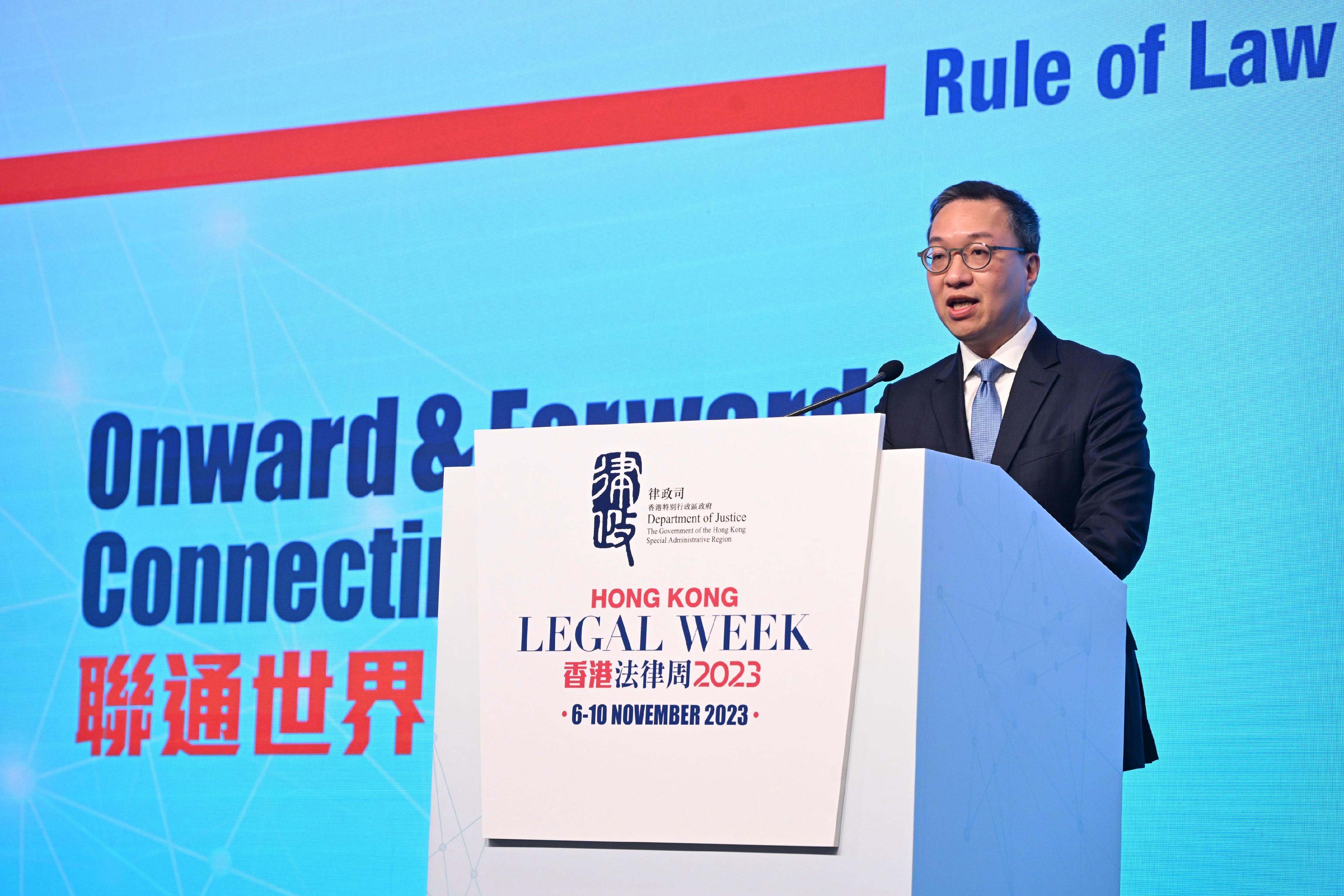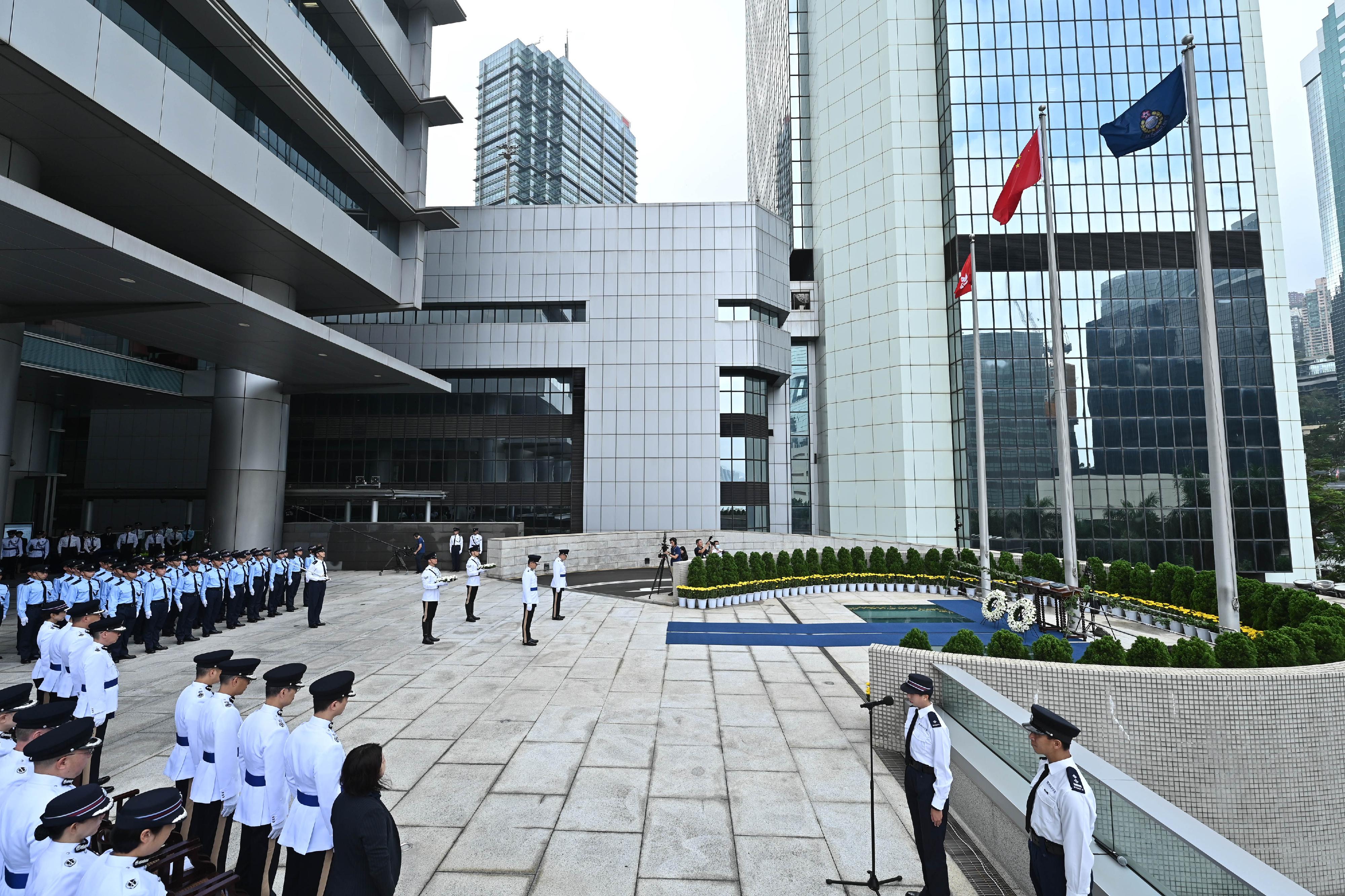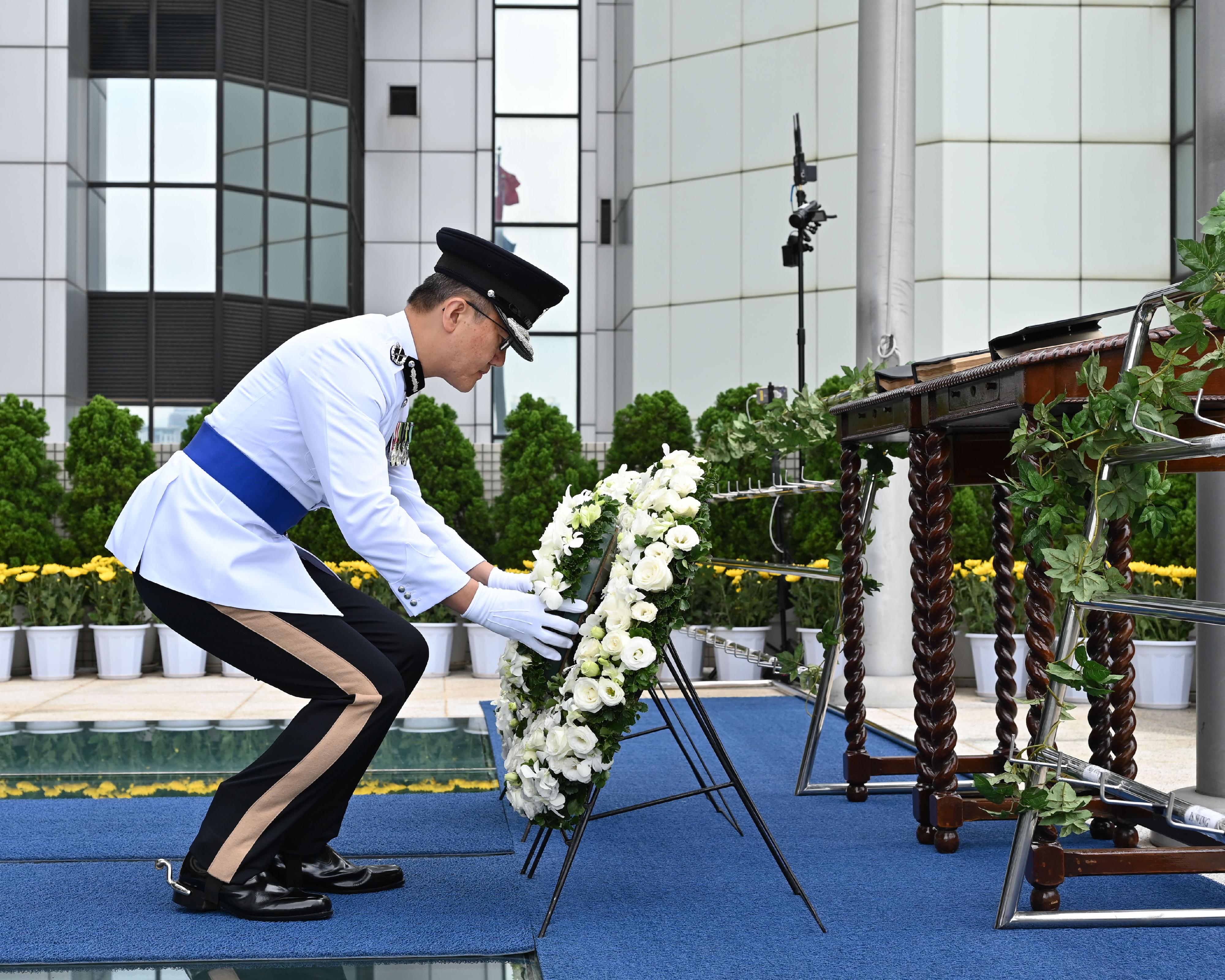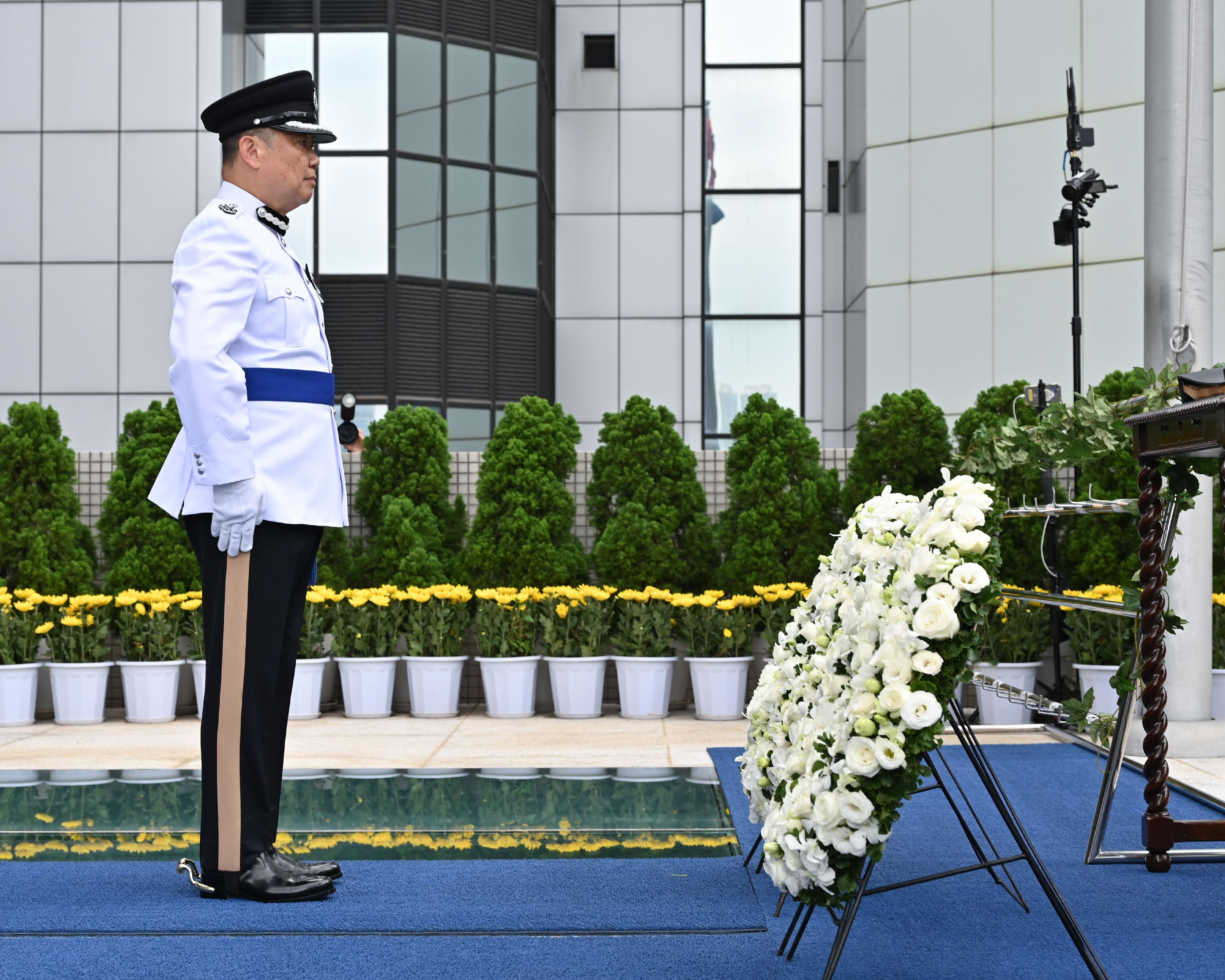Following is the speech by the Secretary for Justice, Mr Paul Lam, SC, at the Hong Kong Legal Week 2023: Rule of Law for the Future today (November 10):
The Honourable Chief Executive, Mr John Lee, Deputy Director Liu (Deputy Director of the Liaison Office of the Central People's Government in the Hong Kong Special Administrative Region (HKSAR) Mr Liu Guangyan), distinguished guests, ladies and gentlemen,
Good morning. On behalf of the Department of Justice of the HKSAR, I would like to welcome you to the fifth and the last day of Hong Kong Legal Week 2023. To bring the Legal Week to a conclusion, we have chosen "Rule of Law for the Future" to be the topic of today's events.
For a better future of Hong Kong, the HKSAR Government is determined to take advantage of Hong Kong's distinctive status and advantages enjoyed under the principle of "one country, two systems" in order to seize the opportunities created by national development plans such as the 14th Five-Year Plan. In "The Chief Executive's 2023 Policy Address" announced on October 25, the Chief Executive stated that, and I quote, "The Government will consolidate and enhance Hong Kong's development of 'eight centres' as outlined in the 14th Five-Year Plan, providing impetus for sustaining our competitiveness and economic growth." These "eight centres" include International Innovation and Technology Centre, East-meets-West Centre for International Cultural Exchange, International Trade Centre, International Financial Centre, Regional Intellectual Property Trading Centre, International Shipping Centre, International Aviation Hub, and Centre for International Legal and Dispute Resolution Services in the Asia-Pacific region.
The "eight centres" are represented by the eight symbols on our backdrop, which you can see outside this conference hall and also on our publications. They provide the basis to enable Hong Kong to play the role of "super-connector" between the Mainland and the rest of the world in future. This also explains the main theme of this year's Legal Week, namely "Onward & Forward: Connecting the World". But as the Chief Executive said last weekend in Shanghai, Hong Kong is not only a "super-connector", but also a "super value-adder". I would venture to suggest that, in some circumstances, it may even be a "super value-creator". Through the "eight centres", Hong Kong does not simply act as a middle-man and provide a platform to connect people and entities between our country and the rest of the world, but also helps the parties concerned to create and enhance the value of the subject matter in question.
To achieve these objectives, it is crucial to recognise that, while the "eight centres" play different and distinctive roles in the future development of Hong Kong, they are interrelated and interdependent. That is why you can see lines linking up the "eight centres" together in our backdrop. As the Secretary for Justice, naturally, my primary concern is to promote Hong Kong as an international legal and dispute resolution services centre. But legal services, whether contentious or non-contentious, are not free-standing. They are meant to serve the needs and demands of society. High quality legal professional services are indeed essential to the development of the other seven centres. This is the point we wish to make in this morning's sessions.
First, let me first say a few words on the international shipping centre and international aviation hub, these two closely related centres. There is no doubt that Hong Kong enjoys traditional strengths in this respect. Despite fierce competition, the container ports of Hong Kong still rank among the top 10 in the world. The Hong Kong Shipping Register is the fourth largest register in the world in terms of gross tonnage. At the same time, Hong Kong has held on to first place as the world's busiest air cargo hub since 1996. That said, the enhancement of Hong Kong's status as an international shipping centre and aviation hub would involve much more than increasing the capacities of our ports and airport, as well as providing better logistic services. Aviation and marine insurance, the tax regime for aircraft leasing, aviation and maritime arbitration and so forth, all entailing legal issues and services, are plainly important matters that must not be overlooked.
I turn to the development of Hong Kong as an East-meets-West centre for cultural exchange. This would, of course, attract more tourists generating tourism income, and strengthen Hong Kong's soft power. Moreover, it is significant to also note that Hong Kong has already overtaken London to become the second-biggest contemporary art auction market in the world after New York. Legal services relating to art auctions and intellectual property protection are clearly required to maintain and increase Hong Kong's competitiveness in this respect.
The high quality legal services offered by Hong Kong is a manifestation of the high degree of rule of law based on our common law system in Hong Kong. To maintain the rule of law requires not only the hard work of judges and lawyers, but also the trust, support and understanding in respect of our legal and judicial system on the part of our fellow citizens. The future of Hong Kong is very much in the hands of our young generation. It is often said that Hong Kong will prosper only when young people thrive. While it is important to equip our young people with skills and knowledge in different areas, it is equally important to nurture and foster proper values such as law abidingness among them. This is why rule of law education has always been one of the priorities of the Department of Justice's initiatives. How to explain the rule of law, our common law system and key legal instruments in Hong Kong, which are perceived by many to be complex and difficult matters, in a way that is fair, accurate and easily comprehensive to lay persons, in particular, youngsters, is a challenging task. The Steering Committee on Rule of Law Education chaired by me was set up last year. The first phase of the Rule of Law Education Train-the-Leaders Programme will be launched later this month. This afternoon after lunch, educators and youths coming from different backgrounds will discuss the future development of rule of law education in Hong Kong.
Today, we are very honoured to have the Chief Judge of the High Court, Mr Justice Jeremy Poon, to deliver a keynote speech, and experts in the above-mentioned areas to share their views.
The final session this afternoon is a new attempt. For the very first time, we have decided to add a session on national security during our Legal Week. As I said at the beginning, the main theme of this Legal Week concerns the relationship between the rule of law and Hong Kong's future. Order and security is an essential element of the rule of law. Moreover, it is critical to grasp the causal relationship between security and development: security is the prerequisite for development whereas development is the guarantee of security. Hong Kong is a place full of opportunities where people are free to pursue their dreams within the boundary of the law. Through hard work and perhaps a bit of luck, there is a real chance that your dreams may come true one day even though there cannot be any guarantee. However, without a safe and secured environment, our dreams will be condemned to become eternal fantasies which stand no real chance of realisation. Make no mistake, there is no future unless we live in a safe and secured environment. Look at our country's history and look at what is happening in some parts of the world at this very moment, I am sure you could understand what I am saying. It is therefore essential for each and every one of us to take national security seriously and positively. Two fundamental starting points should be borne in mind. First, enacting national security law is not only a constitutional duty but also a practical necessity. Second, national security law is, by nature, protective not invasive; and defensive rather than offensive. Let me draw an analogy. Injection of vaccine may be seen as an encroachment on the human right of bodily integrity. But the purpose of vaccination is not to cause any pain or suffering. Quite the contrary, it is to safeguard our health and life from potential harms caused by different types of viruses. Acts endangering national security are similar to viruses; and national security law is the vaccination. It is sheer common sense that effective and sufficient vaccination against commonly known viruses are essential to protect our health and life.
In order to cultivate a proper and positive mindset on national security, it is necessary to address concerns and dispel misgivings as well as misconceptions about Hong Kong's national security law proactively. Therefore, in the last session this afternoon, I will personally answer some frequently asked questions about our national security law.
Ladies and gentlemen, the rule of law in Hong Kong is indeed a good story that must be told. However, we are not merely the storytellers, but also the authors of the story. We must continue to work hard together to write an even better chapter of our story.
Before I conclude, I would like to take this opportunity to thank my colleagues, our working partners as well as guest moderators and speakers from Hong Kong, the Mainland and overseas. Without your support, dedication and hard work, the Legal Week would not have been possible. And, of course, I must express my gratitude to all participants. I wish you all a very fruitful and enjoyable day. Thank you very much.





